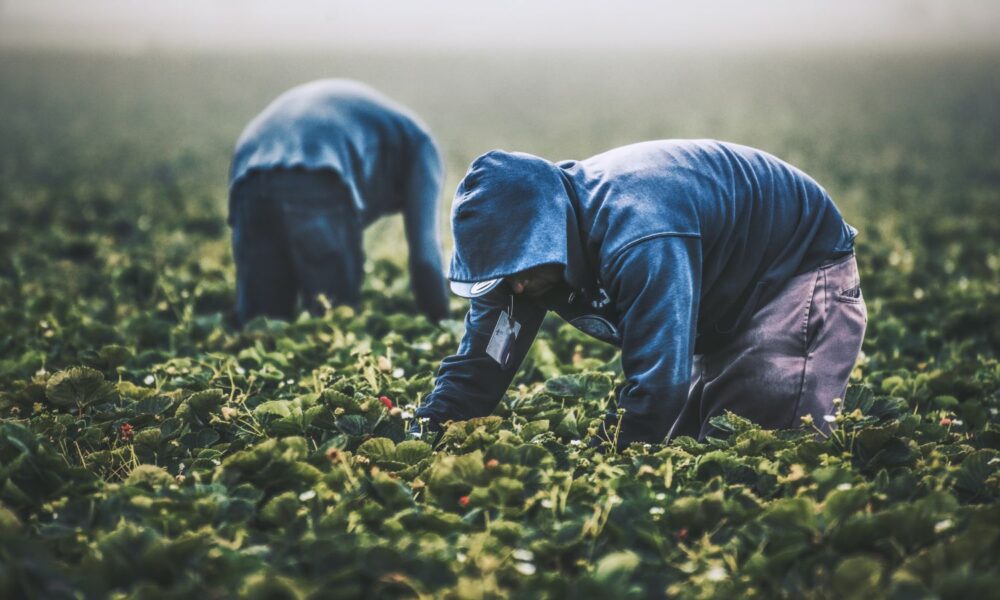The smell of a chicken processing plant never really leaves you.
I remember the sickening aroma so well, even though my last trips to Northwest Arkansas, where the meat and poultry giant Tyson Foods has a chokehold on the local economy and government, were many years ago.
Back then, I was working for a rights-based advocacy group that was partnering with community-based workers’ centers to help poultry processing workers organize. These workers—who only wanted to make a living wage doing honest work—told me how dangerous their jobs were, how they were bullied into working ever faster and harder in unsafe conditions, and what little recourse they had against their powerful employer against wage-theft and injuries.
I’ll never forget Carmen, who came to Arkansas with her husband when their farm in southern Mexico folded, leaving their two young sons with family members. She showed me her hands: at age 28, they were permanently damaged from repetitive stress injuries incurred in long shifts on the processing line.
Injuries, deaths, and illnesses from these jobs are not just part of the business, but the result of deliberate decisions by CEOs, hell-bent on saving pennies as they rake in millions on the backs of their workers. I wish I could say conditions have improved for people like Carmen and her coworkers in the last 15 years. But they’ve only gotten worse, as the companies that profit from these injustices have grown richer.
(You can click through our abundant posts on Tyson to see what they’ve done with their record profits—including lobbying for exemptions to restrictions on line speeds for chicken processing, and forcing workers with COVID-19 to clock in, exposing others to the virus long before there were vaccines or treatments.)
Tyson is far from the only offender.
Our food and agriculture system in the U.S. has been hijacked by massive, powerful corporations that control industrial food production. And because of this, many of the 21.5 million workers who keep our food system going—from farmworkers to slaughterhouse workers to food service employees—are underpaid, mistreated, exploited, and at risk for injuries and illnesses.
The new Food and Farm Bill that Congress must pass this year is a chance to take back control of our food system from these giant corporations. We have the opportunity now to demand that the 2023 Food and Farm Bill protect and support all of us—our communities and families, our shared environment, and the millions of workers who grow our food, often in dangerous conditions and for extremely low pay.
The new Food and Farm Bill could be a way forward
The Food and Farm Bill is passed in Congress every five years. Starting last year in preparation for the new bill, and in coalition with our partner organizations, UCS has been steadily calling on President Biden and Congress to craft sustainable, just, worker-centered, and climate-smart legislation. We’ve laid out our priorities for the bill, and other agriculture-related bills. We co-sponsored a rally, and organized a lobby day in Washington, D.C., both of which brought farmers, farmworkers, and other food activists together to amplify the calls for a truly transformational Food and Farm Bill. As a science organization, we’ve called for increased research funding to explore health threats to farmworkers, and how their working conditions can be ameliorated.
And last week, we joined with 100-plus labor, farm, food justice, and environmental groups in crafting and delivering a letter to the House and Senate Agricultural Committees that demands specific protections for food system workers.
Our asks are simple: protect the millions of people who keep food on our tables.
Specifically, we’re calling for the Food and Farm Bill to include:
- The establishment of a Farmworker and Food Chain Worker Office within the U.S. Department of Agriculture;
- Funding to help farmworkers prepare for and recover from disruptions to the food and farm economy—for example, a pandemic, or extreme heat or drought;
- Increased federal investment in public research programs to better understand and reduce the many risks to farmworkers’ health and safety;
- Increased protections for meatpacking workers, whose jobs were among the nation’s most dangerous even before COVID-19;
- Improved access to federal food assistance programs for food and farmworkers, who—despite keeping our country fed—have some of the highest rates of food insecurity;
- New standards for USDA food procurement contracts that ensure a living wage for workers; and
- Policies that create new pathways for farmworkers to become farm owners.
Long after the time I spent with poultry workers in Arkansas, the COVID-19 pandemic shed new light on the plight of so-called essential workers. During the early, terrifying days of the pandemic, many workers literally put their lives at risk to keep us fed. Today, on the frontlines of the climate crisis, they still are, as farmworkers increasingly labor in deadly heat, face unsafe exposure to pesticides, and breathe in wildfire smoke on the job.
The stability and resilience of the U.S. food system depends on the 21.5 million people who plant, harvest, process, transport, sell, and serve our food. We rely on them to keep our stores stocked, our restaurants running, our food safe to eat. They deserve safe and professional workplaces, fair pay—and to never have to choose between laboring in extreme, life-threatening conditions, and supporting their families.
We call on Congress to pass a Food and Farm Bill that includes protections for the health, well-being, safety, and livelihoods of food workers and farmworkers.

